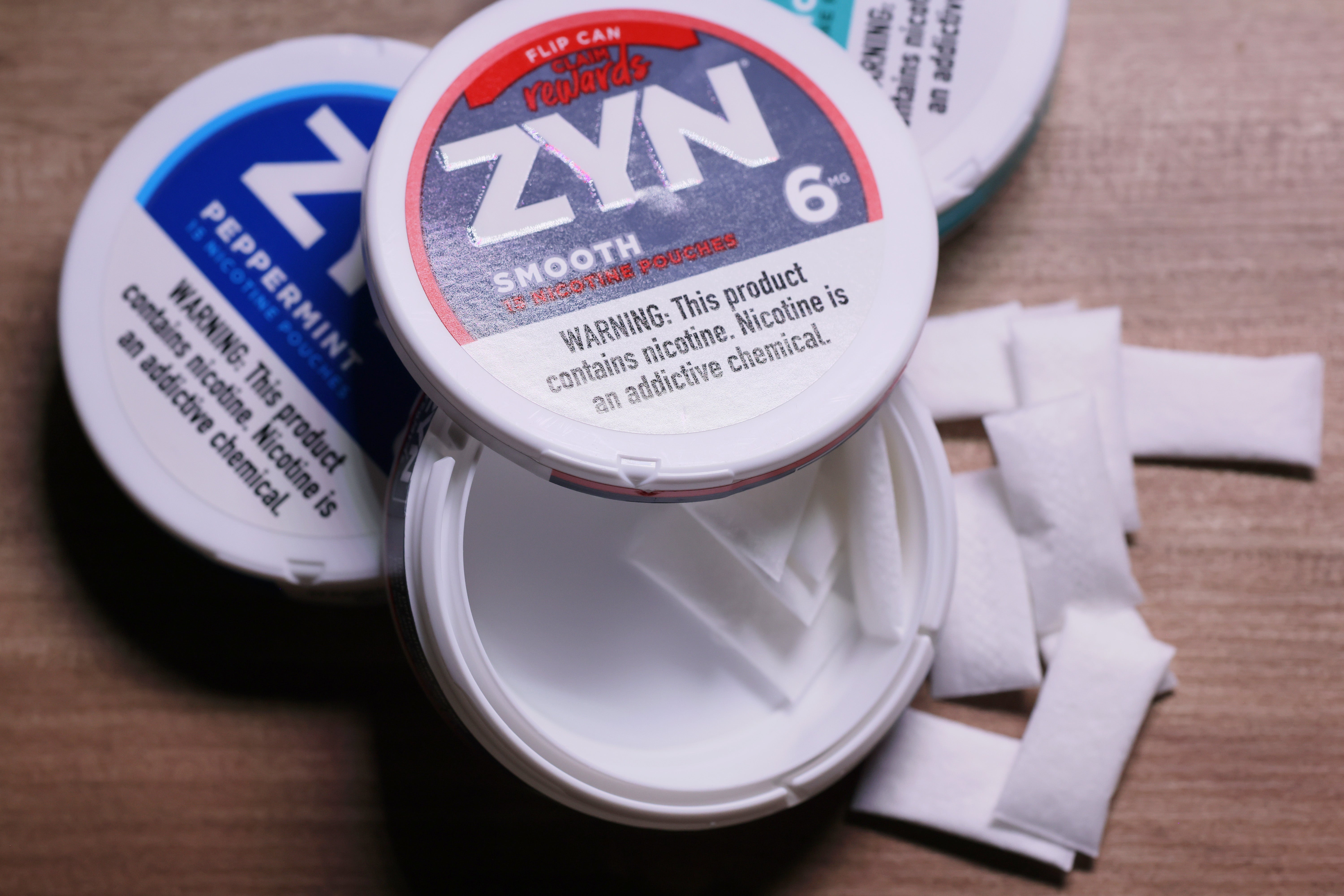
The latest headlines from our reporters across the US sent straight to your inbox each weekday
Your briefing on the latest headlines from across the US
Tobacco company Philip Morris International is suspending online sales on Zyn.com after finding their affiliate may have illegally sold products in the nation’s capital.
Swedish Match North America, an affiliate of the tobacco giant who owns the nicotine pouch brand Zyn, faces a subpoena in Washington, DC. The district’s Attorney General has zero’ed on Zyn sales and if they comply with a 2022 ban on flavored tobacco and flavored synthetic nicotine.
Zyn pouches are small, nicotine-filled pouches that a user places between their gums and their upper lip. The products do not contain tobacco, the company says. Zyn pouches also differ from snus — another oral nicotine product — because they contain nicotine powder, rather than shredded tobacco leaf.
Zyn.com is halting sales after Phillip Morris’ preliminary investigation revealed the flavored nicotine pouches may have been sold in Washington, DC, mostly from online sales and independent sellers, according to a statement. As the company reviews its “sales and supply chain arrangements,” it will no longer be selling products online as an “initial remedial measure.”
“In the event of an unfavorable outcome related to this matter, a material liability is reasonably possible though not estimable at this time,” the company said in a statement.

The pause on online sales does not mean Zyn products are going away — sales on the Zyn website have made up a small percentage of “nationwide Zyn volumes” since Phillip Morris bought the company, according to their statement.
Zyn products have been a point of controversy for months.
In January, Senate Majority Leader Chuck Schumer called for regulators to investigate the nicotine pouches, citing their appeal to teenagers. The Food and Drug Administration says it is watching underage use of nicotine products.
Roughly 1.5 percent of high school and middle schoolers reported using nicotine last year, the FDA said, much lower than the 10 percent of students who reported using e-cigarettes.

 5 months ago
16
5 months ago
16








